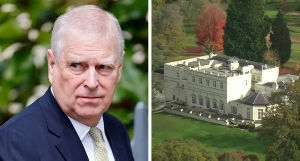Accra, Sept. 12, GNA - Participation of non-resident Ghanaians in the Government medium term securities to be listed on the Ghana stock Exchange later this month will not be allowed.
Mr Francis Andoh, Head of Treasury Bank of Ghana; told the Ghana News Agency that the current legislation governing dealings in money market securities did not permit non-residents to play part in the money market.
However, he said, a review of the position was envisaged in the proposed Foreign Exchange Bill, which was currently before Parliament adding that when the bill was passed the Government would act appropriately.
Mr Andoh granted the interview shortly after presenting a paper on the salient features of the Medium-Term Government Bonds at a workshop organized by the Ghana Stock Exchange to equip all Bank of Ghana authorized Primary Dealers and Licensed Dealing Members of the exchange with the fundamentals of bond pricing and trading.
About 2.4 trillion cedis worth of Government medium term securities are to be listed on the Ghana Stock Exchange by the end of September as part of efforts to enhance the secondary market for debt securities and to facilitate and deepen the capital market.
However, only government debt instruments that carry fixed interest rates would be on the Exchange. These are the Government of Ghana 2-yr Fixed Rate Note and the Government of Ghana 3-yr Fixed Rate Bond, which were issued between January and August 2006.
Those from September would be listed as soon as the auctions take place.
Mr Andoh said aside providing the market with a platform for secondary trading the listing would also support a market driven yield curve that would provide benchmark for private sector borrowers, such as issuers of corporate bonds.
It would also allow market participants to develop the necessary skills in the trading of bond instruments to further deepen the capital market.
Mr Andoh said the listing of the instruments would make them available to investors all day instead of the current situation where they could only be obtained through a Primary Dealer who had to submit a bid on behalf of the investor at the weekly auction. He said the success of the trade in the instruments depended to a large extent on participants, principally government securities dealers and brokers.
"The ability to price instruments and fairly too, easy procedures in acquiring or disposing of the securities on the secondary market and ease of settlement will give the investing public confidence in the money market."
Mr Kofi Yamoah, Managing Director of the Exchange, who took the participants through the Draft Dealing Guide, said it would be mandatory for all dealers, both Government Securities Dealers (GSD) and the Licensed Dealing Members (LDM), to do all transactions relating to the bonds on the exchange between 0900 and 1200 hours.
Over-the-counter trading would, however, be allowed between two dealers after floor trading closed.
Mr Yamoah said the initial registration fees for GSDs and LDMs for 2006 had been waived in order to encourage many of the GSDs to register and to help bring greater liquidity into the market.
The Government fixed rate instruments to be listed bear the same features that are characteristics of any conventional bond, such as a coupon rate fixed at the time of issue, a face value, which is also the maturity value and a half-year interest payment based on the coupon rate and the face value of the instrument, irrespective of the purchase price.
Business News of Tuesday, 12 September 2006
Source: GNA












